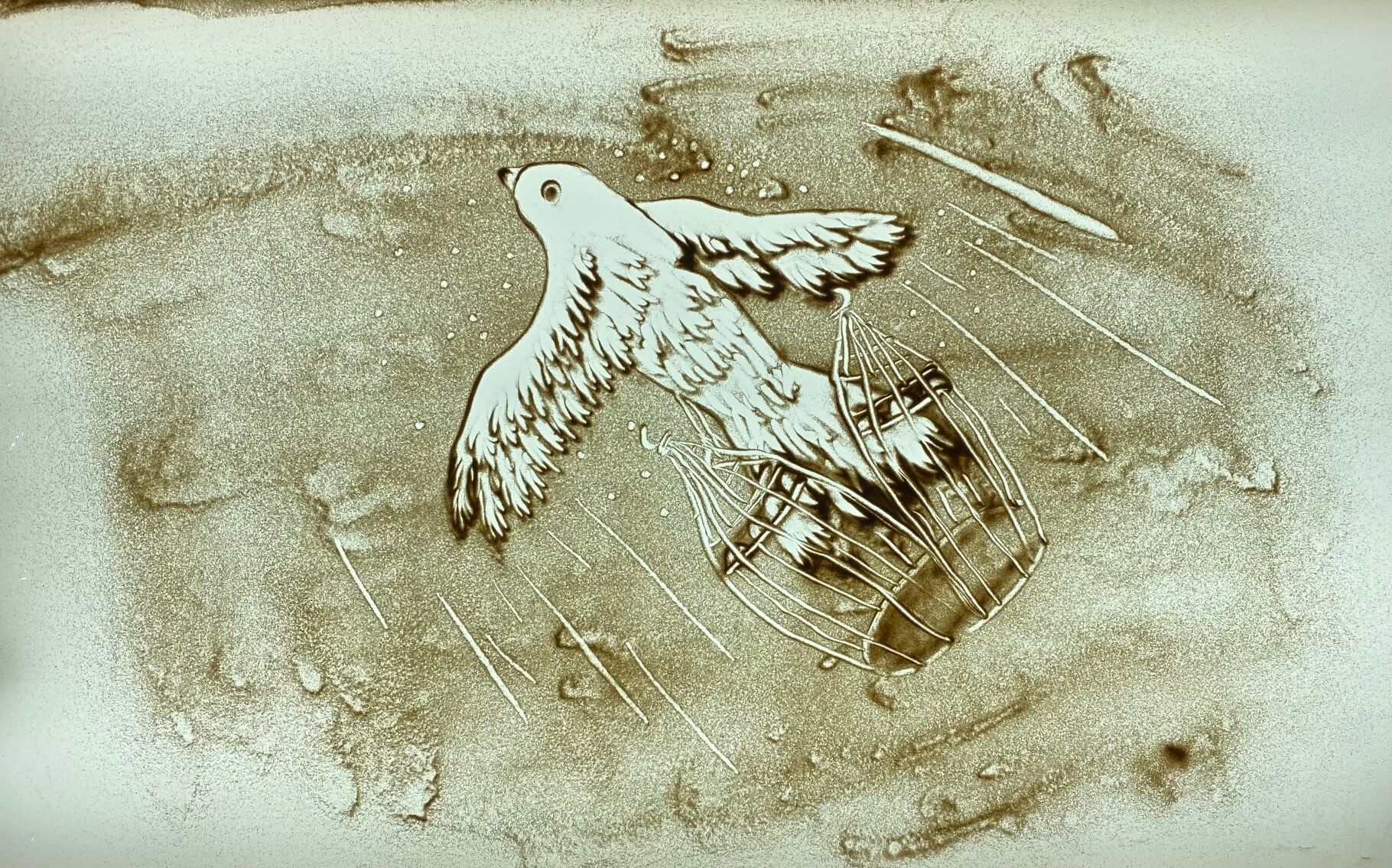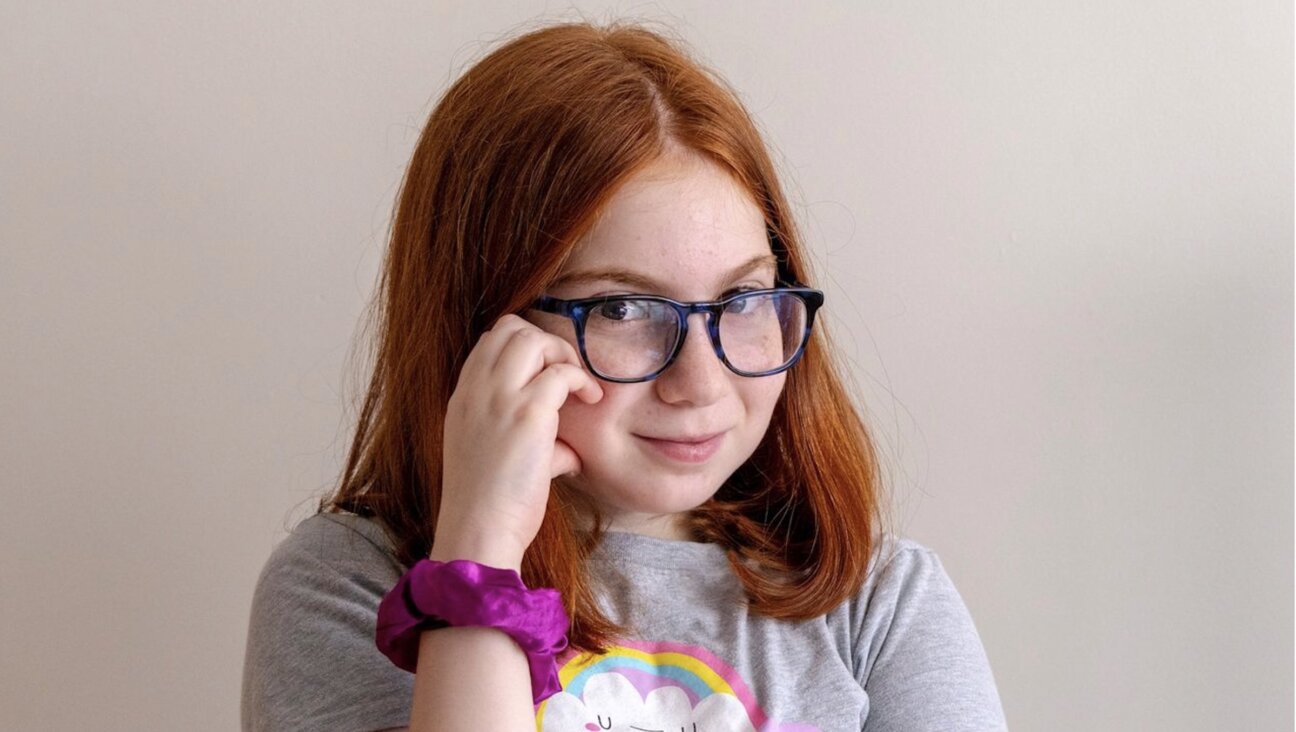This upcoming Yiddish concert is a clarion call for a better world
Josh Waletzky’s musical work will be performed in New York on March 26 by leading Yiddish singers

Graphic by Angelie Zaslavsky
A cast of renowned singers from Ukraine, Latvia, Germany and other countries are set to perform a contemporary musical commentary on what it means to be a refugee and a call for solidarity with those who are most threatened.
The concert, called pleytim tsuzamen (Refugees Together), will debut in the United States on Sunday, March 26, at the Museum of Jewish Heritage in New York City. In it, the singers and musicians will perform 13 Yiddish art songs composed by the acclaimed Yiddish songwriter and filmmaker Josh Waletzky, decrying the conditions of our time and calling upon the listeners to fight for justice.
The event is sponsored by the National Yiddish Theatre Folksbiene and the Museum of Jewish Heritage.
Unlike previous performances, this one at the Folksbiene will include supertitles in English and Ukrainian, and a projection of sand art created by Zhenya Lopatnik.
You can watch a preview of the concert here.
The concert features Yiddish music stars including singers Daniel Kahn, Sveta Kundish, Sasha Lurje and Polina Shepherd and instrumentalists Merlin Shepherd, Ilya Shneyveys, Jake Shulman-Ment, Beth Silver and Deborah Strauss, most of whom Waletzky has known for years.
Waletzky told the Forward that he actually wrote the music with the singers’ personas in mind. They possess voices that actually convey the intense emotion of the pieces. All the singers on stage are pleytim themselves in one form or another. They grew up in one country and live in another.
One pleyta, Asya Fruman, will not be on stage herself, but her work will be. Fruman lived in Kharkiv, Ukraine, with her parents, but after the Russian war on Ukraine broke out in February 2022 she escaped to Lviv and then Germany through a network of Yiddishists. It was she who wrote the Ukrainian supertitles for the show; Waletzky doesn’t see them just as symbolic, but practical. The songs could now speak directly to Ukrainian refugees.
“I hope they come,” he said.
Protest songs are part of a long musical tradition in Yiddish — a tradition of calling people to collective political action, stemming from the days of fighting the czar in Russia in the late 19th century and continuing into the 21st century. Wallowing in sadness accomplishes nothing, Jewish revolutionaries declared. Instead all Jews should join mass demonstrations for change.
Waletzky was determined to continue this tradition, and not, as he told the Forward, “make a memorial to the past.”
At the music workshop program Yiddish Summer Weimar in Germany in 2019, which commissioned Yiddish artists like him to produce works tied to the creative burst of the period between the World Wars, he refused to go work with content from the time. Instead, he wrote a song cycle, a musical form that was popular at the time, but centered it on the problems of the present day.
Pleytim tsuzamen is the name of the last song in the cycle. The last verse of the song references the killing of 32-year-old Heather Hayer in Charlottesville, Virginia, in 2017, when a man plowed his car into a crowd protesting a white supremacist rally.
a’ der soyne vet mikh teytn
mit an oyto tsi a koyl,
vest vayter geyn un kemfn,
on moyre un nit foyl.
If the enemy should kill me,
with a car or with a bullet,
you will keep on fighting,
not be afraid and not be lazy.
Since 2019, the list of concerns and causes Waletzky dedicates his music to has lengthened; the COVID-19 pandemic and the war in Ukraine are the most dramatic examples.
It’s surprising then that he describes pleytim tsuzamen as songs of hope, but Waletzky sees no contradiction. He thinks that the experience of exploring these traumas together can lead to lasting solutions. Or, as he himself puts it in one of his songs: “The melody may be gone, but still it resounds, giving us strength just as shabes does for the week ahead.”

















